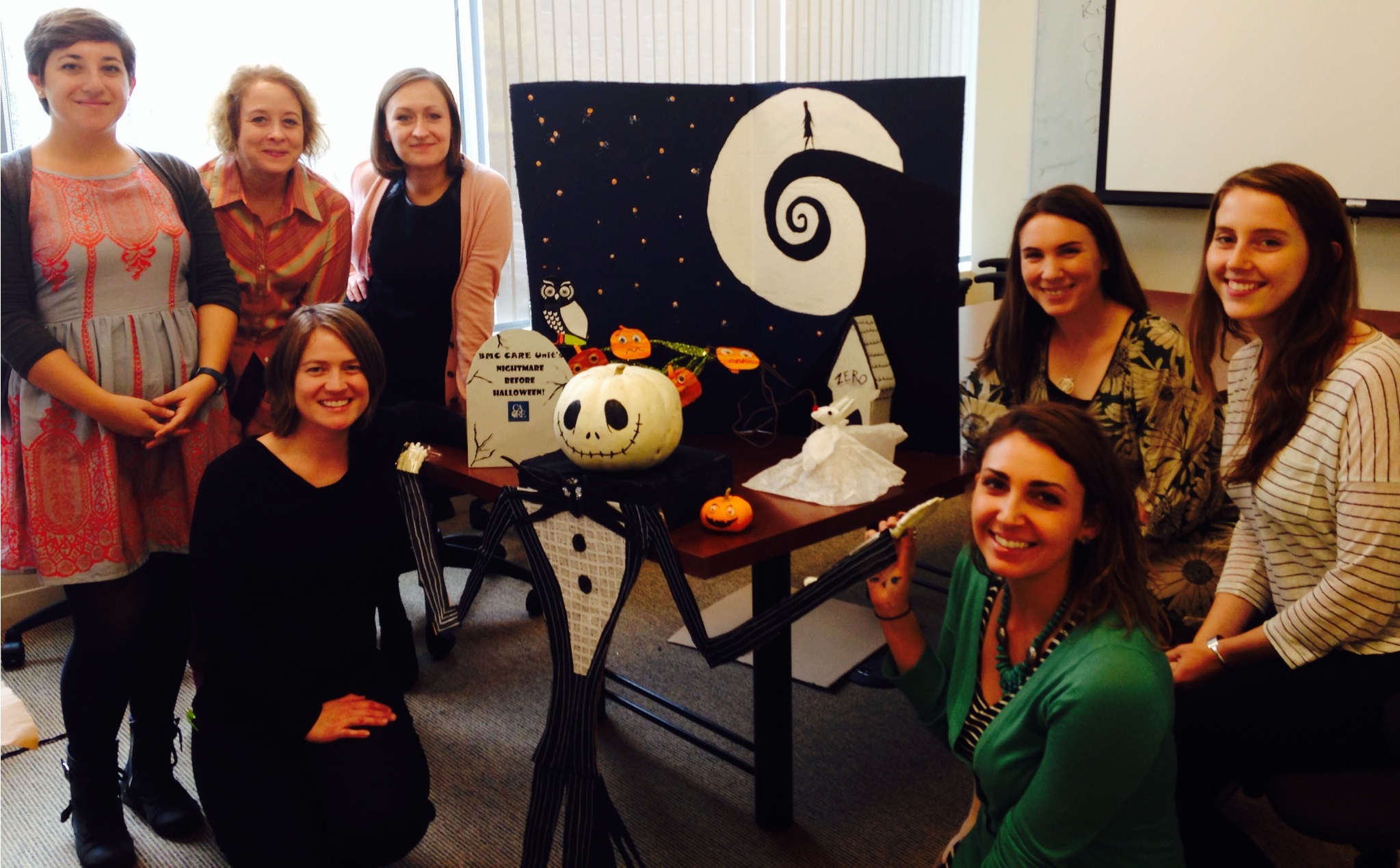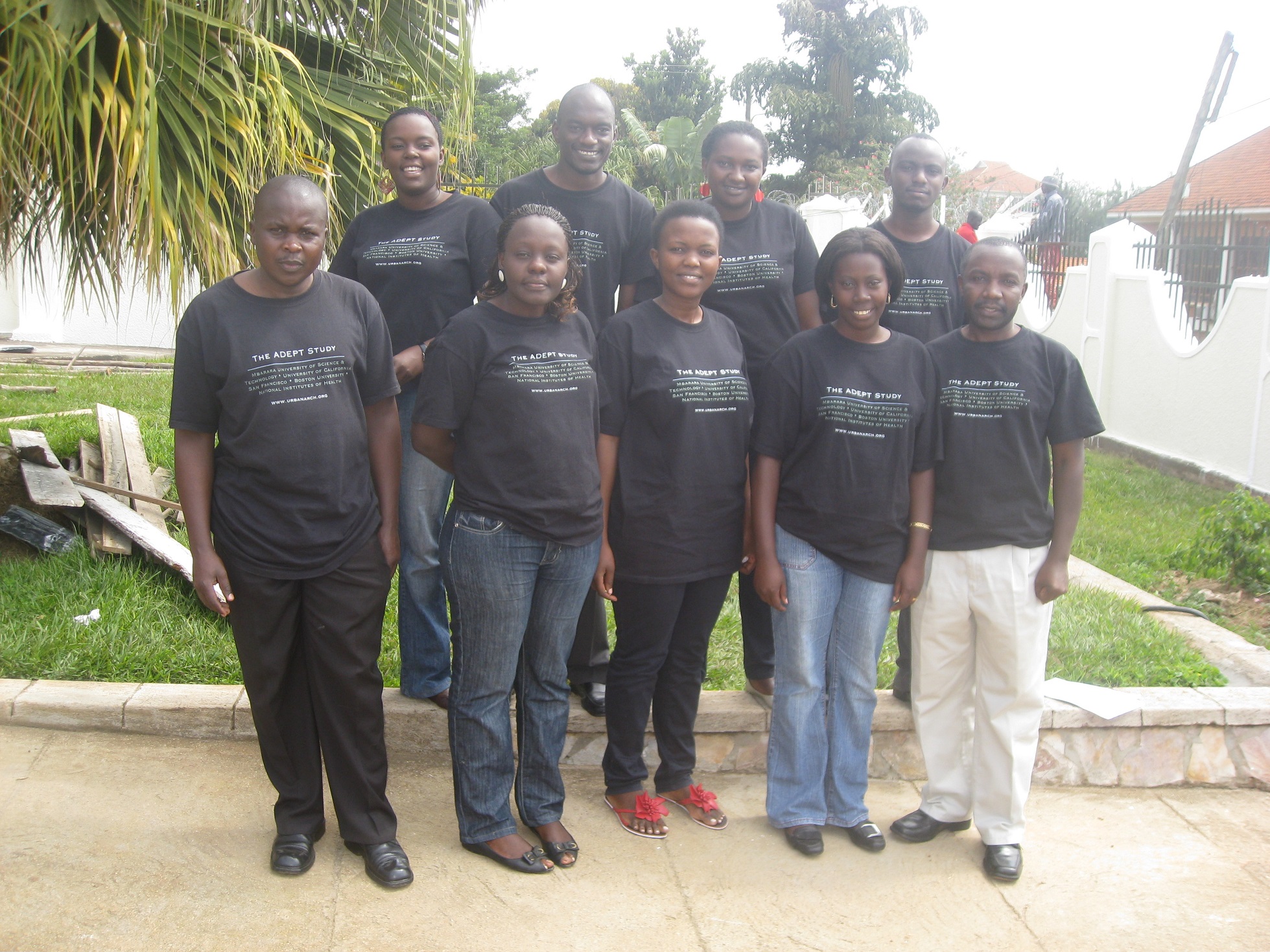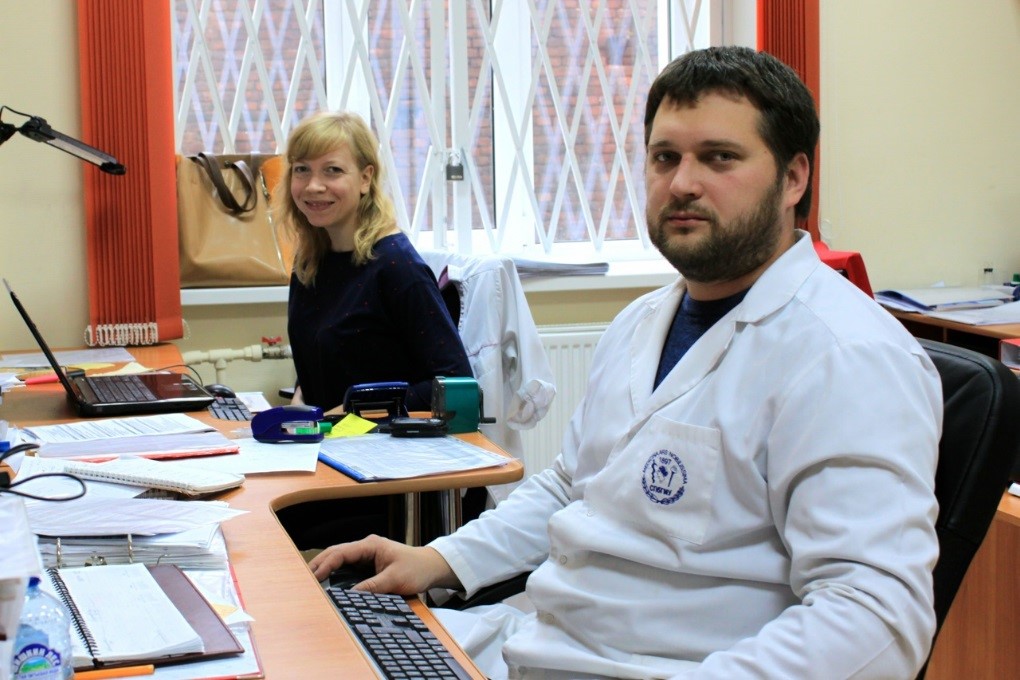Core and Cohort Updates
Admin Core
Trick-or-treat! In the spirit of Halloween, the Admin Core collaborated with some other members of the CARE Unit in creating Jack from Nightmare Before Christmas for Boston Medical Center’s pumpkin contest.
The Admin Core prepared and hosted the first URBAN ARCH baseline data review meeting on October 24th, 2014. In addition to reviewing the baseline data from all three cohorts, the research teams and interested collaborators from around the country discussed analyses ideas that could potentially lead to abstracts and manuscripts. All in all, this was a fruitful meeting!
Subsequently, several interested collaborators have expressed interest in utilizing URBAN ARCH data and are working with the team on multiple abstracts to be submitted to the College on Problems of Drug Dependence and the Research Society on Alcoholism conferences.
Pictured right: the Admin Core team, with other members of the CARE Unit
BDM Core
The BDM has been busy the last few months preparing for the ARCH DSMB meeting, the half day baseline data meeting, and conference deadlines. Several analyses are currently in progress for manuscripts and the winter conference deadlines. We’re also happy to welcome Brent Ardaugh, BUSPH alum, to the Core.
Pictured left: Brent Ardaugh
Uganda Cohort
As of November 2014, Uganda ARCH has concluded enrollment with a total of 484 subjects. We exceeded our target enrollment of 450 to make up for censored participants due to their confirmed HIV negative status.
Uganda ARCH has conducted 297 6-month assessments, 195 12-month assessments, 97 18-month assessments, 38 24-month assessments, 2 30-month assessments, and 1 36-month assessment. Follow up rates continue to be exceptionally high and the study is running smoothly.
Pictured right: ADEPT team in Uganda
Russia Cohort and ZINC RCT
As of November 2014, Russia ARCH enrolled 271 participants and conducted 134 six-month assessments, 69 twelve-month assessments, and 48 eighteen-month assessments.
As of November 2014, ZINC enrolled and randomized 158 of 250 participants and conducted 50 six-month assessments and 4 twelve-month assessments.
In October 2014 the team successfully completed enrollment of the initially planned 250 participants into Russia ARCH. Recruitment is still ongoing, as participants are continuing to co-enroll into Russia ARCH and ZINC.
We welcomed Dr. So-Armah to the study team as the recipient of NIAAA’s diversity supplement. Dr. Samet, Dr. Tsui, Ms. Gnatienko, Mr. Patts and Dr. So-Armah traveled to Russia in October to conduct extensive quality control procedures, observations and refresher training. Meeting in person provided the opportunity for the joint US-Russia team to discuss analyses, future direction and even generated an idea for a potential supplement to look at alcohol use disorders in HIV and TB co-infected individuals. Availability of baseline data stimulated exciting research questions and resulted in the submission of four abstracts to CROI and preparation of three abstracts for CPDD submission.
On November 19, 2014, Dr. Freiberg will give a presentation titled, “Design of an RCT evaluating zinc supplementation to prevent progression of HIV disease among heavy drinkers in the Russia ARCH cohort” at the 142nd APHA Annual Meeting.
Pictured above: Russia ZINC assessors, Vladimir and Marina
Boston Cohort
As of November 2014, the Boston ARCH team has enrolled 245 of 250 subjects. 179 six-month follow-up assessments, 125 twelve-month follow-up assessments and 51 eighteen-month follow-up assessments have been completed. Twenty-four-month follow-up assessments are scheduled to begin in December 2014.
In October 2014, the Boston ARCH study team held a meeting to review all baseline data collected from the first 230 Boston ARCH Cohort participants to generate new ideas for analyses. Meeting attendees included a number of interested collaborators who were introduced to the Boston ARCH study team and data set.
The team is working with the Administrative and BDM Cores to get the first batch of serum samples tested for 25-hydroxy-vitamin-D and adding measurement of grip strength by dynamometer to all follow-up assessments. The Boston ARCH team is also working with the BDM Core on the submission of multiple abstracts to the annual meeting of the College on Problems of Drug Dependence and the Research Society on Alcoholism.
Pictured right: Team in Boston




